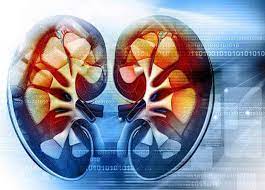New Delhi. In an important discovery, researchers from the University of Cambridge have successfully changed the blood types of three deceased kidney donors. This revolutionary discovery is a great relief for those waiting for kidney transplant. This research is about to be published in the British Journal of Surgery. Scientists say that this discovery can speed up the supply of kidneys for transplant. Especially for such people, who belong to a particular ethnic group, whose chances of kidney match are very less. Let us tell you that for kidney transplant, it is very important for two people to have kidney match. Just like the kidney of someone with blood group A cannot be transplanted to someone with blood group B and vice versa. But changing the blood group to Universal O will lead to more transplants, as it can be used for people with any blood group.
Professor Mike Nicholson and PhD student Serena McMillan used a normothermic perfusion machine. A device that attaches to a human kidney to pass oxygenated blood through the organ to better preserve it for future use. According to the University of Cambridge report, the enzyme acted like a scissor to remove blood type markers that line the blood vessels of the kidney, resulting in the conversion of the organ to the most common type O blood group.
Student Serena McMillan told that when we applied the enzyme on a piece of human kidney tissue, we saw that the antigens were removed. At that point our confidence had really increased. After that we understood that this process is possible. Now our next step was to apply the enzyme to the entire human kidney. Serena continued, “By taking a B-type human kidney and using our normothermic perfusion machine to pump enzymes through the organ, we saw within a few hours that we had converted a B-type kidney to an O type. It’s exciting to think about how many lives this discovery could save.”
Changed blood group for kidney transplant, revolutionary discovery of researchers, read this complete research
The finding could be particularly impressive for people from ethnic minority groups who often wait a year longer for a transplant than white patients. People from minority communities are more likely to have type B blood and don’t have enough kidneys with the current low donor rate of these populations.
 Indian Thought Latest News & Views
Indian Thought Latest News & Views



